|
|
|
|
|
Interdisciplinary Japanese Studies On Site
|
DIJ Newsletter 79
Spring 2025
|
|
|
|
|
|
Welcome to the Spring 2025 issue!
|
|
Everyone is talking about AI and algorithms. They can support us in many areas, including research. But how can we ensure that they do not harm our society or even divide it? "Algorithms and AIs have taken over the very powerful position of deciding what will capture the attention of millions of people -- and this is one of the reasons for the crisis of democracies", Yuval Noah Harari warned in a recent roundtable discussion in Tokyo (see below and video on YouTube), co-organised by the DIJ. Referring to Facebook's unintentional involvement in the Rohingya massacre in Myanmar, Harari explained how algorithms in social media have deliberately spread propaganda, although their initial aim was simply to increase user engagement so that more people spend more time on their platforms. "Algorithms themselves discovered", Harari explained, "that hate-filled conspiracy theories make people become very engaged".
|
|
We hope you will take some time to engage with this edition of the DIJ Newsletter, even though it is free of conspiracy theories and written without the use of AI. We introduce new team members, new publications, look back at recent events, bid farewell to our librarian, and update you on our outreach and social media activities.
|
|
If you haven't yet done so, you can subscribe to receive the DIJ Newsletter directly to your inbox here. We also welcome your feedback and email address updates via email.
|
|
From all of us at the DIJ, we wish you a pleasant cherry-blossom season,
|
|
|
|
|
|
Research News ・Neues aus der Forschung ・研究活動ニュース
|
|
|

|
|
Image © Christina Polak-Rottmann
|
|
Game Design Project on Rural Japan
|
|
Christina and Sebastian Polak-Rottmann's new research project 'Putting Research into Play: Designing a Digital Game on Places of Resilience in Rural Japan' uses game design as a method of knowledge production. Its goal is to create a digital game about places of resilience in rural Japan that reflects on the core aspects of qualitative research in social sciences. The in-game characters are based on the roles certain actors play in rural communities in Japan. Playing the game involves interacting with these characters as well as with the game world. The aim of the players' virtual fieldwork trip is to find answers to the research question of how social exchange helps create structures of resilience in rural Japan.
|
|
|
|
|
|
New Publications ・Gerade erschienen ・新刊
|
|
|
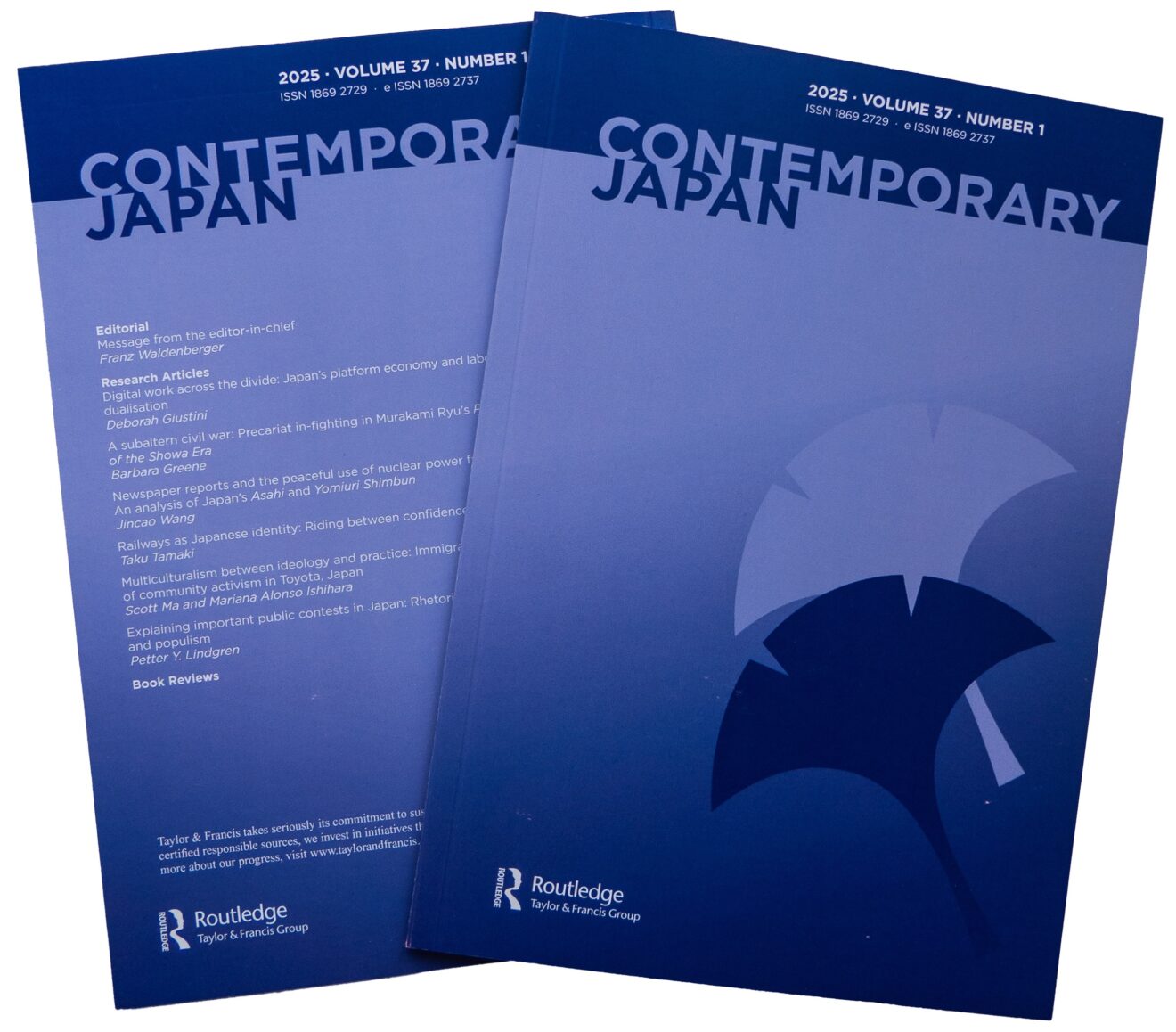
|
Cover © T&F
|
|
New Issue of Contemporary Japan
|
|
The new issue of CJ includes six research articles on new forms of labour market dualization (D. Giustini), on Murakami Ryu’s Popular Hits of the Showa Era (B. Greene), on media discourses of nuclear power in the early postwar period (J. Wang), on Japanese identity construction through railway technology (T. Tamaki), on narratives of multiculturalism and community-building among Nikkei (S. Ma & M. Alonso Ishihara), and on political rhetoric, public contest outcomes, and populism in Japanese politics (P. Lindgren). In addition, our book review section covers recent publications on Jesuits, the bombings of Hiroshima and Nagasaki, East-West encounters in Japanese art, and the Japanese business community in Germany. For the latest updates, please follow CJ's new social media account on Bluesky.
|
|
|
|
|
|
Recent journal articles, book chapters, and outreach articles by DIJ researchers:
|
- Carolin Fleischer-Heininger, "Zwischen destruktivem Fortschritt und inklusiver Menschengerechtigkeit: Zukunftsentwürfe als Zeitkritik und Kompass in Chiryō-tō von Ōe Kenzaburō (1935–2023)". In: K. Gondlach, B. Brinkmann, M. Brinkmann, J. Plath (eds.), Regenerative Zukünfte und künstliche Intelligenz: SDG-Forschung, Konzepte, Lösungsansätze zur Nachhaltigkeit. Springer VS. 383–395.
- Carolin Fleischer-Heininger, “Perspektiven auf Blindheit in Beruna no shippo (1996) von Gunji Nanae.” In: L. Gebhardt, C. Chappelow (eds.), Formationsprozesse japanischer Literatur: Selbstreflexionen, Metafiktion und die Relevanz des Mediums. EB Verlag 2025. 167–188.
- Carolin Fleischer-Heininger, "Behinderungen als Thema der zeitgenössischen Literatur Japans". Kaihō: Mitgliederzeitschrift der Deutsch-Japanischen Gesellschaft in Bayern, Januar-Februar 2025. 22–25.
- Sébastien Lechevalier & Malo Mofakhami, "Assessing job satisfaction in the era of digital transformation: a comparative study of the first wave of tasks digitalization in Japan and France". Eurasian Business Review, 15, 1–37 (31 January 2025, online first).
- David M. Malitz,「近江商人の暹羅屋勘兵衛: 現在の日・タイ関係のより適当な象徴?」(The Ōmi-merchant Kanbei Shamuroya: a more appropriate symbol of current Japan-Thailand relations?). 『三方よし』 (Sanpō yoshi), 53 (2), 2–3.
- Nicole M. Mueller, "Extended Reality in Japan – Zukunftsvisionen zwischen Cyberspace und Realität". MWS Themenportal (21 January 2025).
- Christina Polak-Rottmann, "Das Spielerische am Forschen: Game Design als Methode der Wissensproduktion". MWS Themenportal (6 February 2025).
- Torsten Weber, "Die Kriegsverbrecherprozesse des Pazifikkrieges". Clausewitz Spezial Pazifikkrieg, 47, 90–91.
|
|
|
|
|
DIJ News ・Aus dem DIJ・研究所ニュース
|
|
|
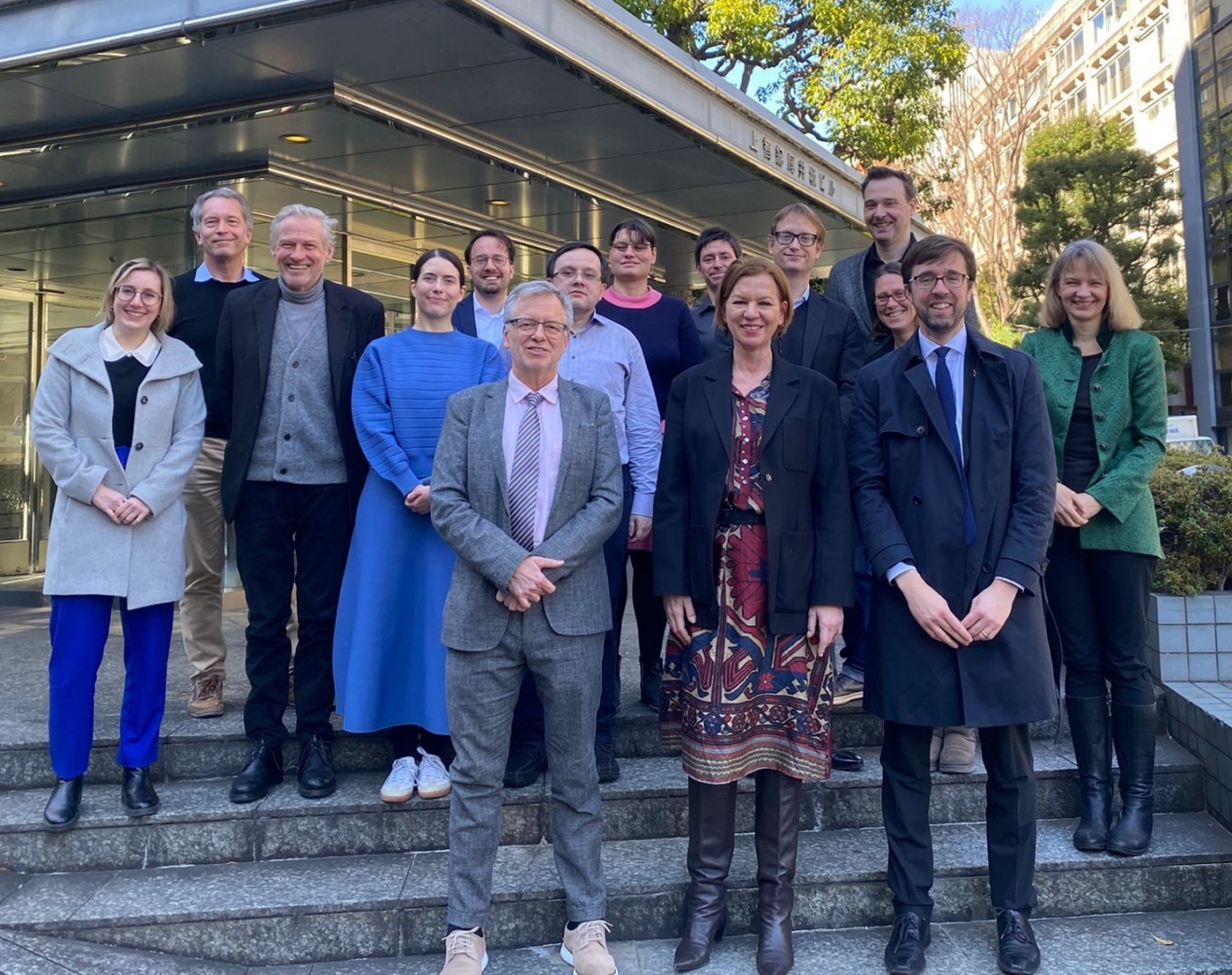
|
Photo © private
|
Embassy and DFG Delegations Visit DIJ
|
|
Headed by Ambassador Petra Sigmund, a German Embassy delegation (photo) visited our institute in January to learn about our research and outreach activities. After the presentation of our current research projects, we discussed the changing significance of Japan in the region, the role of China, Prime Minister Ishiba’s political agenda, digital transformation, and imaginations of the future. Also in January, we had a very fruitful exchange with a delegation from the German Research Foundation (DFG), led by director Ingrid G. Krüßmann. Both parties agreed to further intensify the scientific exchange and cooperation.
|
|
|
|
|
|
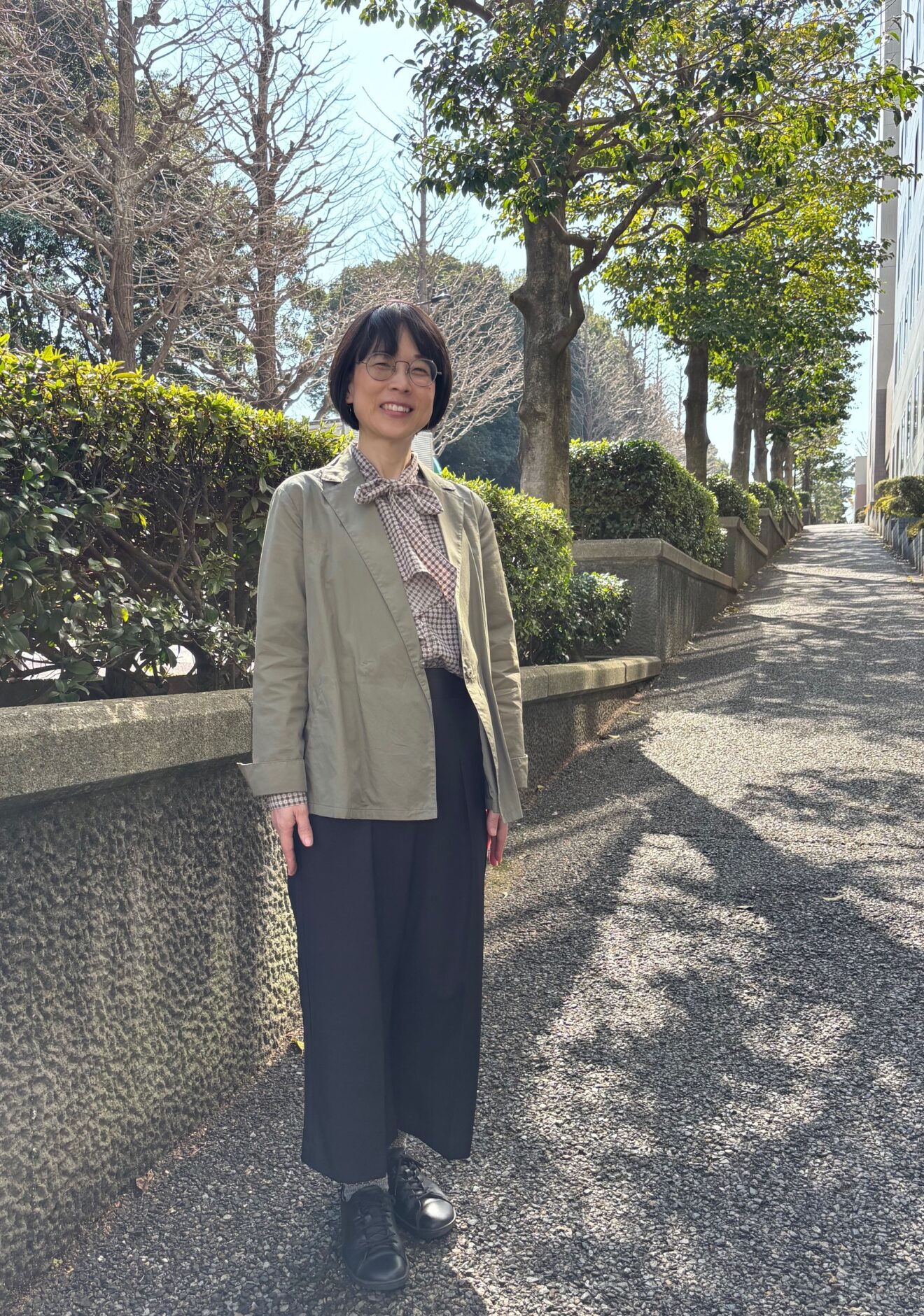
|
Photo © DIJ
|
|
Meet Our New Librarian Megumi Ono
|
|
In March, Megumi Ono began her position as our new librarian. She holds a Master's degree in Linguistics (Kyushu University, Fukuoka) and studied Chinese in Beijing. After shifting her career to librarianship, she worked as an academic librarian for ten years, including as an ILL and Reference Librarian at Chuo University Library in Japan and as a Japanese Studies Librarian at the University of Hawaii Library in the U.S. At the DIJ, Megumi manages the library as a solo librarian, drawing on her expertise in academic research and library work. She is also learning German to become more involved in her work at the DIJ. We warmly welcome Megumi in our team!
|
|
|
|
|
|
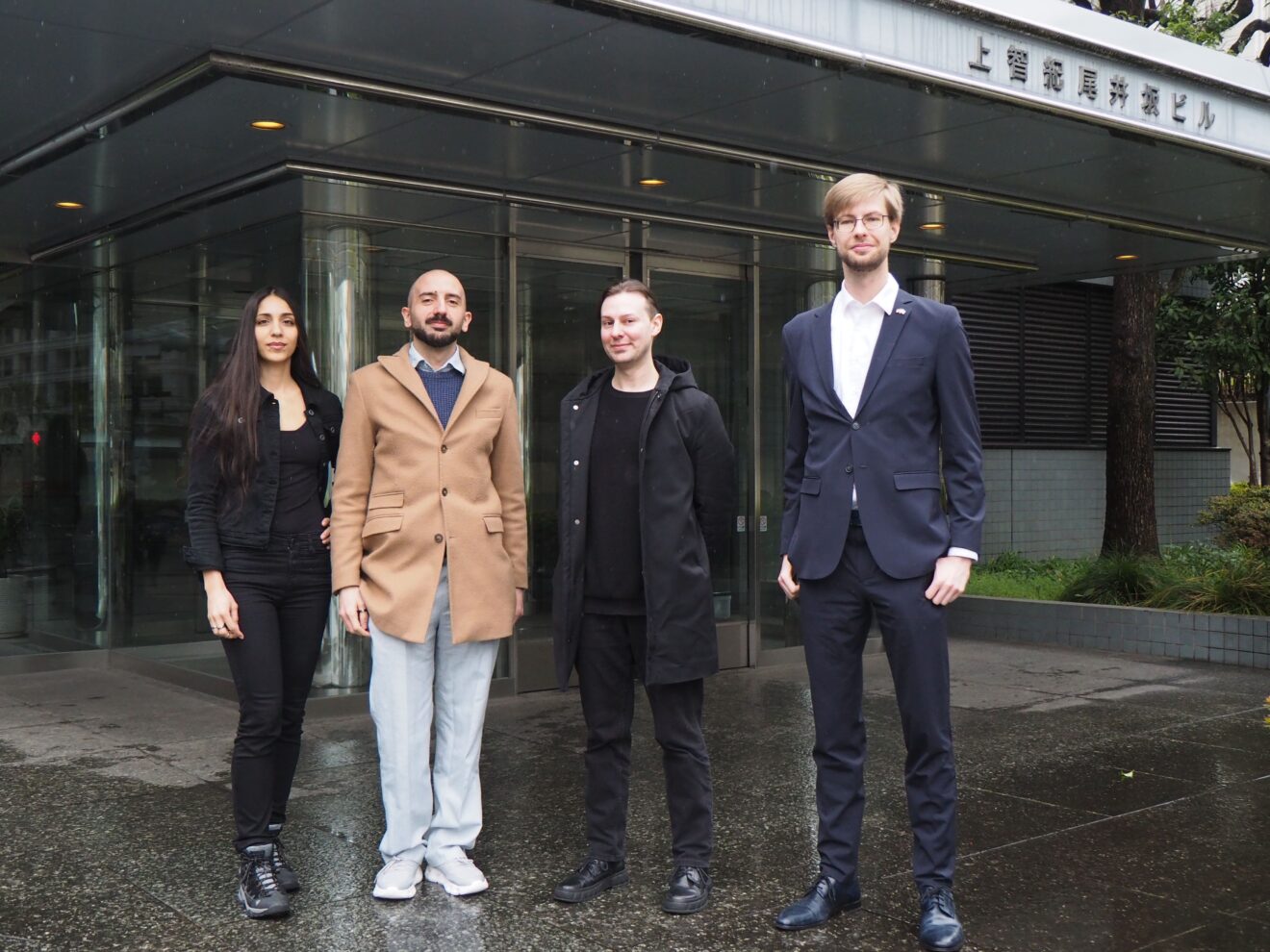
|
Photo © DIJ
|
|
Four New PhD Students at the DIJ
|
In February and March, we have welcomed four new PhD Students at the DIJ: Jan Felix von Alten (Frankfurt), Florian Grosser (Vienna), Junko Lévay (HU Berlin), and Alberto Zizza (LMU Munich). Jan Felix works on the so-called public policy reservation in German and Japanese private international law. The lived experiences of people that speak Japanese as a second language is the topic of Florian's dissertation. Junko's project examines the differences and similarities in the interpreting strategies between deaf and hearing interpreters, while Alberto's research examines the construction of Japanese national identity in the Meiji period, focusing on Haga Yaichi’s Kokuminsei jūron.
|
|
|
|
|
|
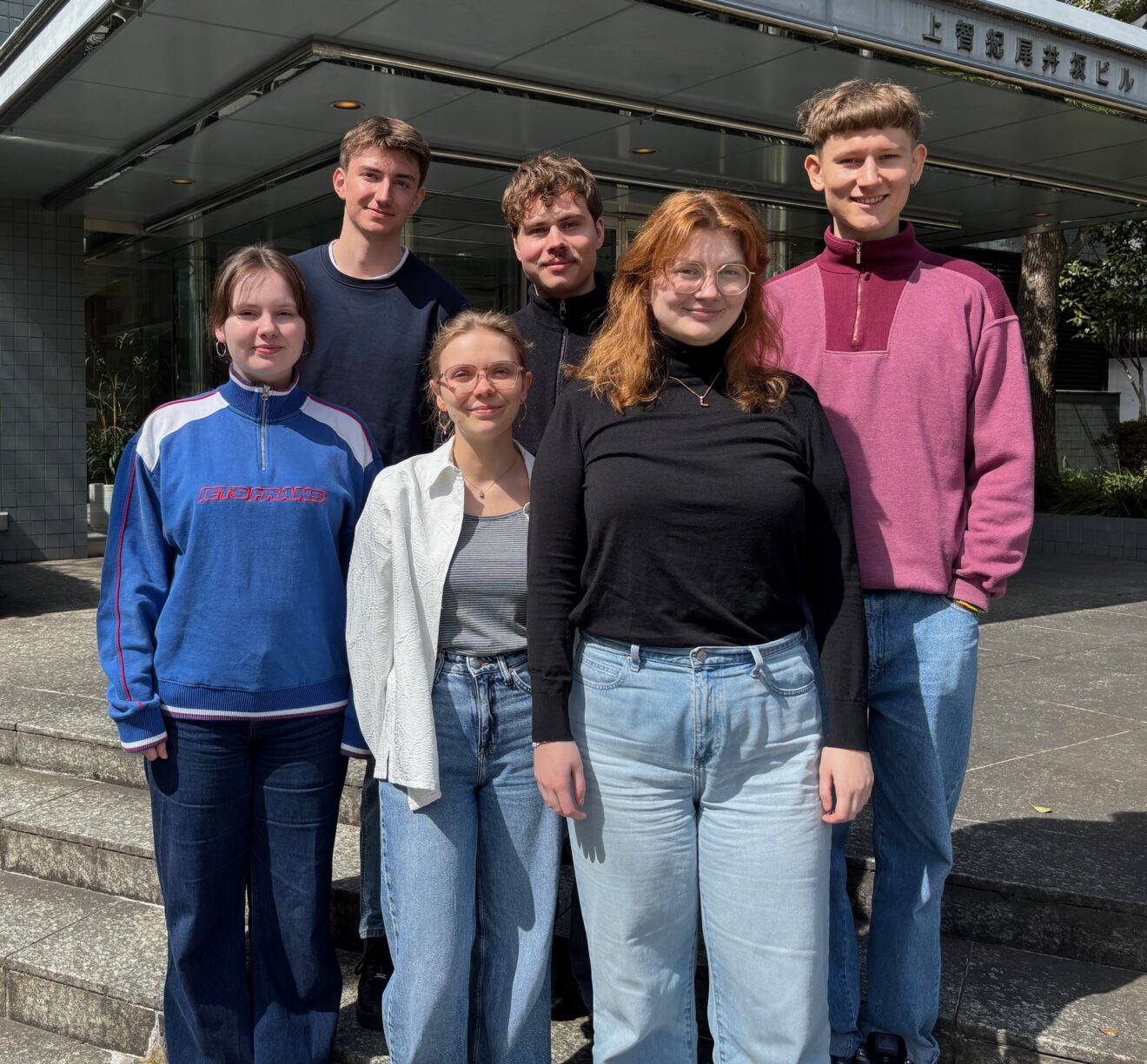
|
Photo © DIJ
|
|
Six new interns have joined the DIJ in February and March. Ben Schreiber and Anna Schönborn (both Heidelberg) support David Malitz, Sebastian Polak-Rottmann, and Dolf-Alexander Neuhaus with their research projects in the fields of politics and history. Ida Hagmayer (LMU Munich) assists Carolin Fleischer-Heininger and her research on disabilities in Japanese literature. Luise Weirauch (Cologne) supports Celia Spoden's research on cybernetic avatars. Robin Schröder assists Franz Waldenberger's research in the field of economics and Nikolaus Neidhardt (Leipzig) supports Torsten Weber with his research and in science communication. If you are interested in joining our team as an intern, please check our guidelines (in German). We look forward to your application!
|
|
|
|
|
|
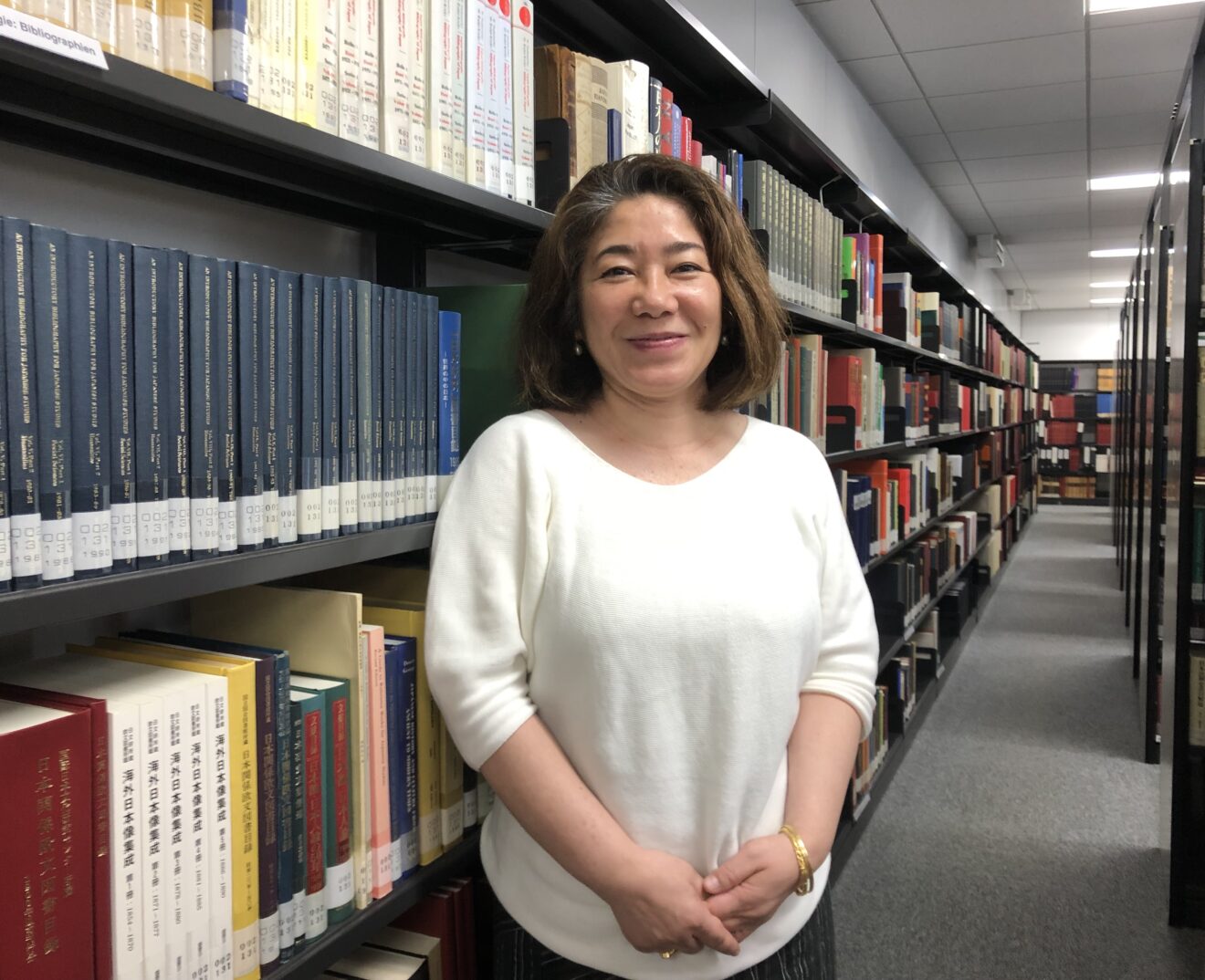
|
Photo © DIJ
|
|
Goodbye to DIJ Librarian Yoko Nagamine
|
|
After two years of service, our librarian Yoko Nagamine has left the DIJ. She told us she felt very fortunate to have had the opportunity to start her career as a Japanese Studies librarian at the DIJ after earning her Master's degree in Library and Information Science. Although she was new to the field, the DIJ's researchers and staff were extremely patient and kind, she says. Thanks to their support, she has learned a lot and developed her skills through hands-on experiences. As she opens the next chapter in her librarianship, she will apply what she has learned at the DIJ. We wish her all the best for her new adventures.
|
|
|
|
|
|
Upcoming Event ・Kommende Veranstaltung・今後のイベント
|
|
|
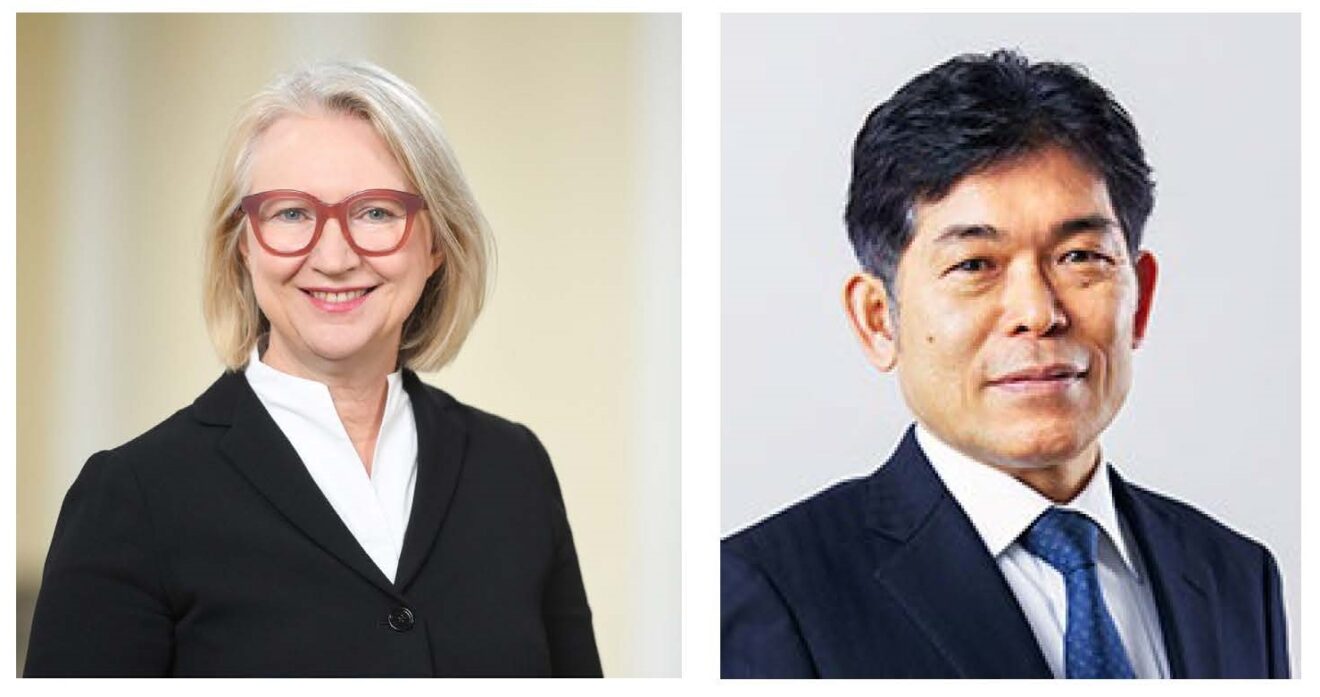
|
Photos © LMU/private
|
|
Whither Japanese and German Economies
|
|
A rapidly ageing population, global warming, heightened geopolitical risks, and a U.S.-induced tariff war – entering 2025, the German and Japanese economies confront an increasingly challenging and uncertain economic environment. The DIJ Forum 'The German and Japanese Economies Maneuvering in Uncharted Waters' will discuss how both countries confront the fundamental domestic and international challenges. Presentations by Monika Schnitzer (German Council of Economic Experts) and Noriyuki Yanagawa (Council on Economic and Fiscal Policy) will be followed by comments from Osamu Mogi (Kikkoman Corporation), Makoto Shiono (Institute of Geoeconomics), and a networking reception. The event takes places on 22 April online and at the DIJ. It is co-organised with the Japan Association of Corporate Executives.
|
|
|
|
|
|
Past Events ・Vergangene Veranstaltungen・最近のイベント
|
|
|
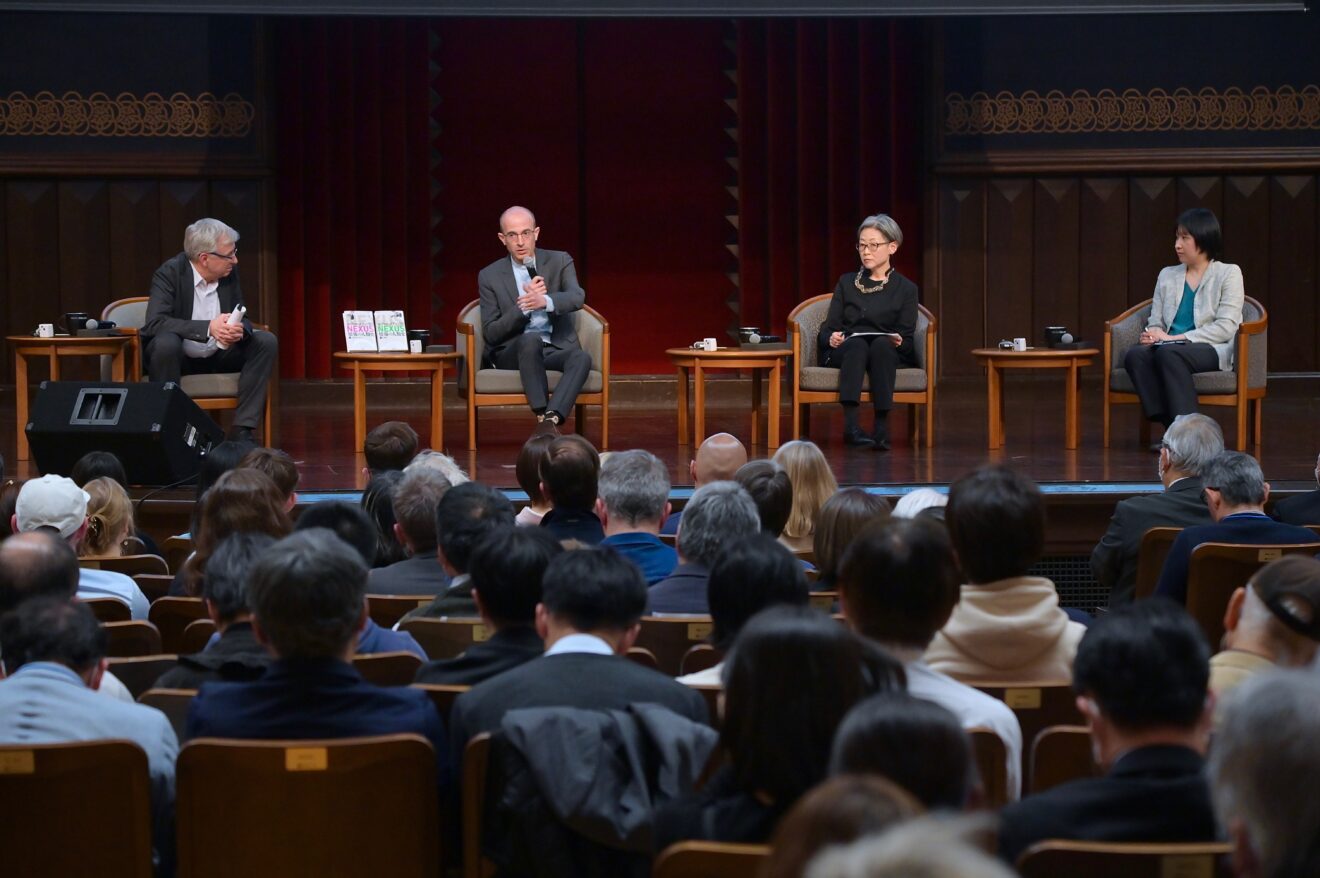
|
Photo © Kawade Shobo Shinsha
|
Roundtable Discussion with Yuval Harari
In March, together with Tokyo College and Kawade Shobo Shinsha, the DIJ organised the roundtable discussion 'The Role of Education and Science in the Digital Age'. Together with Hayashi Kaori and Ema Arisa (both University of Tokyo), historian, philosopher, and bestselling author Yuval Noah Harari discussed the chances and risks artificial intelligence bears for democracy, science, and education. The event was moderated by Franz Waldenberger and attended by nearly 800 guests. A video of the roundtable discussion is available on the DIJ's YouTube channel.
|
|
|
|
|
|
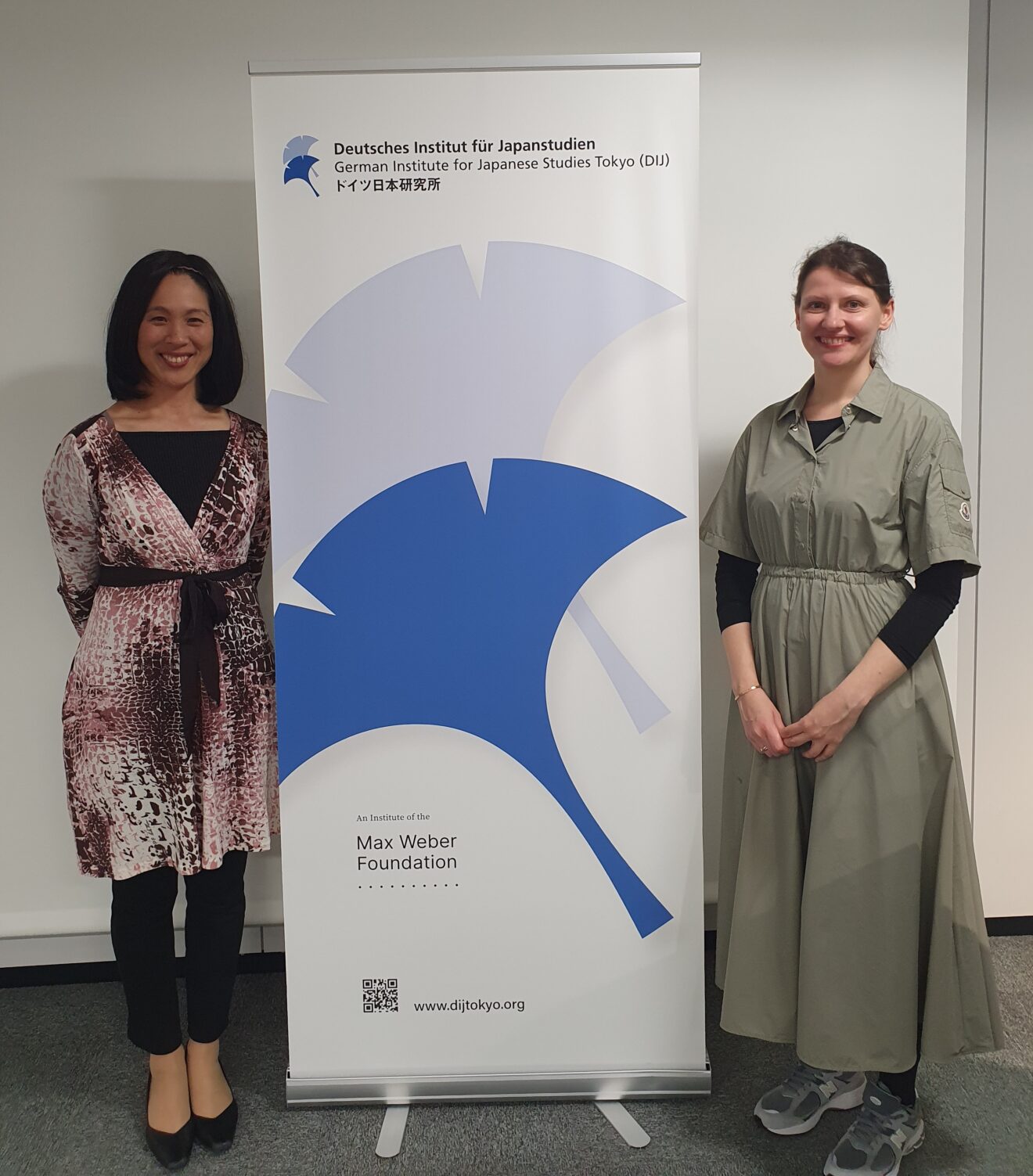
|
Photo © DIJ
|
DIJ Forum on Sustainable Food Practices
The hybrid DIJ Forum 'From the Rice Grain to the Shop – Exploring Sustainable Food Practices in Japan' combined approaches to sustainable food practices of two different worlds within Japan: the urban landscape of cities which caters to the fast schedules of modern Japanese life and sustainable food production in rural Kumamoto. Sustainability scholar Patricia Hein (Ontario) discussed Japanese approaches to food rhythms and uncovered how temporality influences sustainability practices. Farmer and local activist Eri Ōtsu (Minamiaso) illustrated the challenges and achievements of running an organic farm in rural Japan and demonstrated the possibilities of a sustainable lifestyle in Japan’s depopulating areas. Selected slides are available on our event page.
|
|
|
|
|
|
DIJ in the Media ・ In den Medien・メディアで知るDIJ
|
|
|

|
Screenshot © ZDF
|
|
DIJ Expertise in German Radio and TV
|
|
|
|
|
|
Social Media ・Soziale Medien・ソーシャルメディア
|
|
|

|
Screenshot © DIJ
|
New DIJ Social Media Account on Bluesky
|
|
Following recent changes on the social media platform X, the DIJ has decided to terminate its activities there and to join Bluesky instead. We invite you to become part of our growing community of currently 453 followers there. This way you will be the first to receive announcements of upcoming events, new publications, other activities of our institute and its researchers, plus job and fellowship advertisements. Follow us here!
|
|
|
|
|
|
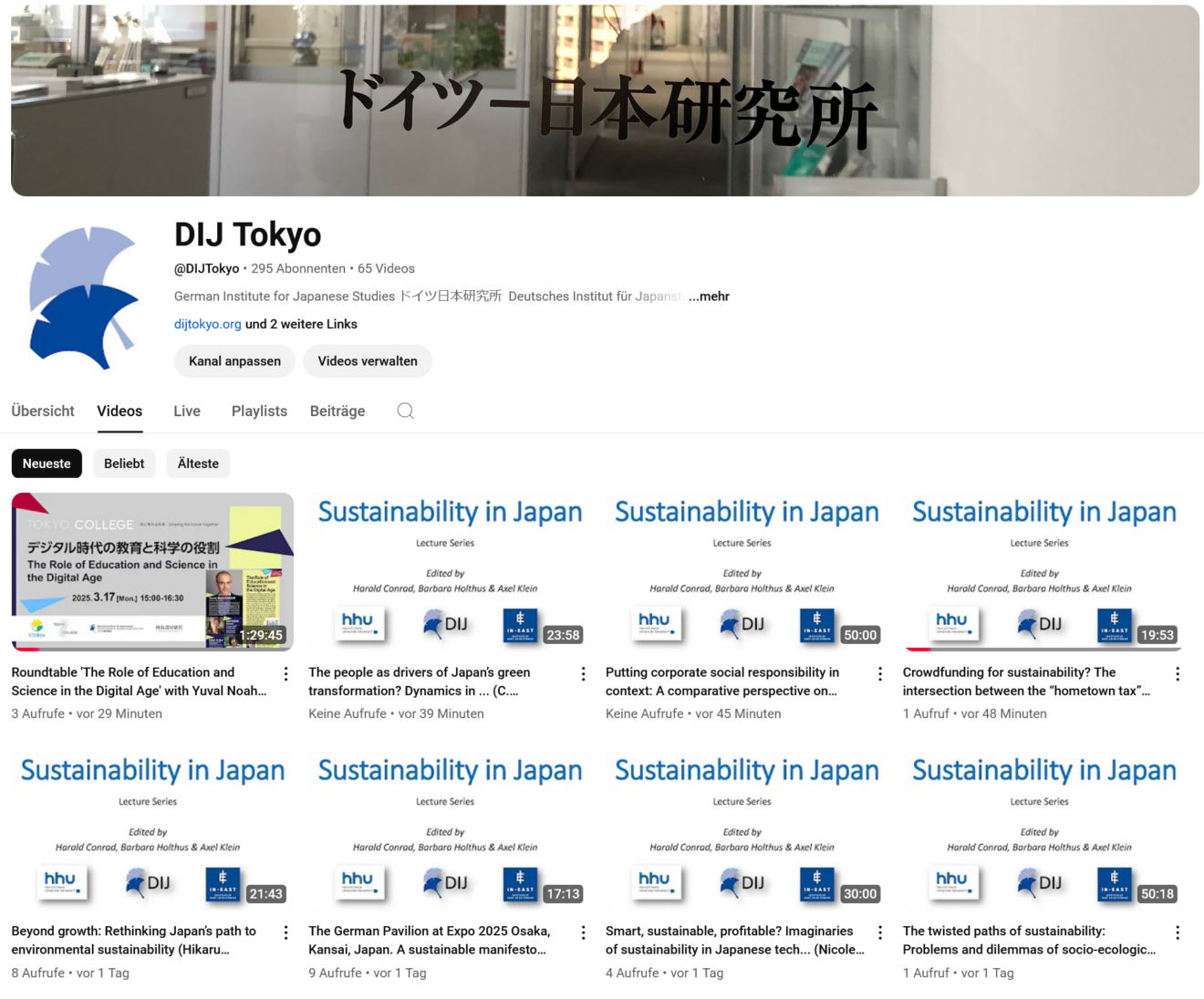
|
Screenshot © DIJ
|
Explore 24 New Videos on DIJ's YouTube
|
|
Sustainability, Future Imaginations, and Yuval Noah Harari's insights into how AI changes our societies: over the past weeks we have been busy preparing new videos for the DIJ's YouTube channel. In total we have now uploaded twenty-four new videos from three different events which are now accessible online. If you don't want to miss our latest uploads, please subscribe to our YouTube channel here!
|
|
|
|
|
|
|